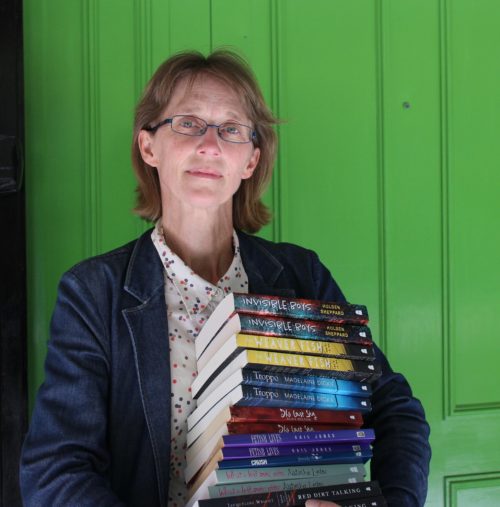Amid the COVID-19 chaos, Fremantle Press Publisher Georgia Richter says in books, at least, we can hold endings in our hands

I am currently reading A Notable Woman, a lifetime’s worth of ‘the romantic journals’ of Jean Lucey Pratt, edited and condensed into one hefty volume by Simon Garfield. The book was a gift given to me by my friend Andrea in the UK, who read it on a recommendation from her friend, Hilary Mantel. On the other side of the spousal bed, my husband is reading Hilary’s final instalment in the Wolf Hall trilogy, The Mirror and the Light. Another friend in the UK emailed me yesterday saying how much she was enjoying Mantel’s novel, but that it had already struck her in the face several times because she reads it at night just before sleeping.
Right now, in the Pratt journals, we are deep in the deprivations of the Second World War. Pratt comments on how draining uncertainty can be, in the midst of air raids, bombings and rations. Hers are events that I know the ending to, but Pratt in her journal does not. When will the war end? Pratt doesn’t and can’t know, though she can speculate. I find myself paying more attention to her account than I ordinarily would: so this is what it feels like to live through a moment in history, and to be aware that it is historic. This is what it is like to have no sense of how a particular chapter in history might end.
Two weeks ago, I was talking to a friend in the States. My friend was poised to write a book about a beautiful, then broken, love affair. She was going to tell it in the context of the enduring love that people have for Prince, set against the backdrop of a pop-up People’s Museum for Prince, a transportable model which she had established to explore the democracy of togetherness, connection and the united expression of love for a single person.
‘What even is that now?’ my friend said. ‘What even is a museum?’ She found that the final vestiges of pain around her broken relationship had vanished like wisps into the air: suddenly they are BC (Before COVID) – from the time when actual museums were possible. Now the whole concept for her book seems like a historical tale, an occurrence that sits on the other side of a line we have all crossed together. Now her story waits again to be revealed in a new dimension, in the light of the ‘history’ that has intervened since, and in light of whatever it is that a museum has become.
What of all the books I am editing right now, and the novels we have already printed but which are not yet released? Will it seem strange to the reader that these stories did not know, did not account for COVID-19? Will these novels set in the present become like those movies you watch in which the Twin Towers still appear on the New York City skyline – those movies from the moment before everything changed? Will we read these new novels with a kind of nostalgia for what we lost when 2020 began?
In the meantime, strange new modes of being insert themselves into daily life. I consciously step wide of people in the street and punctuate the day with handwashing. I note the appearance of a coronavirus emoji in my mobile phone and gaze upon depleted supermarket shelves. I wonder why it is that I look like a lined old camel on Zoom while my colleague Claire seems to be broadcasting from the inside of Apollo 11 and my fellow editor Armelle always appears to be in the pink of good health.
In this strange new world, reality bites, and our authors lose their already uncertain incomes as book launches and writers festivals and teaching opportunities vaporise. Readers will keep reading, of course, and right now we need them to keep buying books, to help the writers who wrote them – as well as the bookshops that sell them – make it through.
Right now is a time for a different kind of connectivity, a time to appreciate what we cannot have: the gathering of family and friends; the being part of an audience; the setting off on a holiday for somewhere, anywhere! It is a time for that smallest social unit of our lives – the household – to do jigsaws and rummage in the fabric box, and cook in the kitchen, and read together in the same room. We are connected to people all over the world via the internet but we are also each living in the secluded cocoon of our homes. In many of these private, domestic moments, there is a quiet joy to be found. Why didn’t we do this before? Why didn’t we just sit and read in the sun while overhead the parrots cavorted in the autumn grapes? What was stopping us? All those meetings, perhaps, all the insistent demands of the work day and the school day, and the ‘outside’ world. How easy some of those things are not to miss, and how we miss them still.
How many different endings will there be in the stories to come, when we reach the time that is AC, newly wary, and vulnerable? Will our writers stop writing? I doubt it. Will the stories they tell be different now? To some extent they must be, though no different perhaps to the stories that Jean Louise Pratt relayed through 1939 and beyond: stories of uncertainty, deprivation, loss, recovery, and finally, moving on.
Right now, nobody knows the end to this story. And that, I think, as I read my Pratt, is the reason why we read – in books, at least, we can hold endings in our hands.


